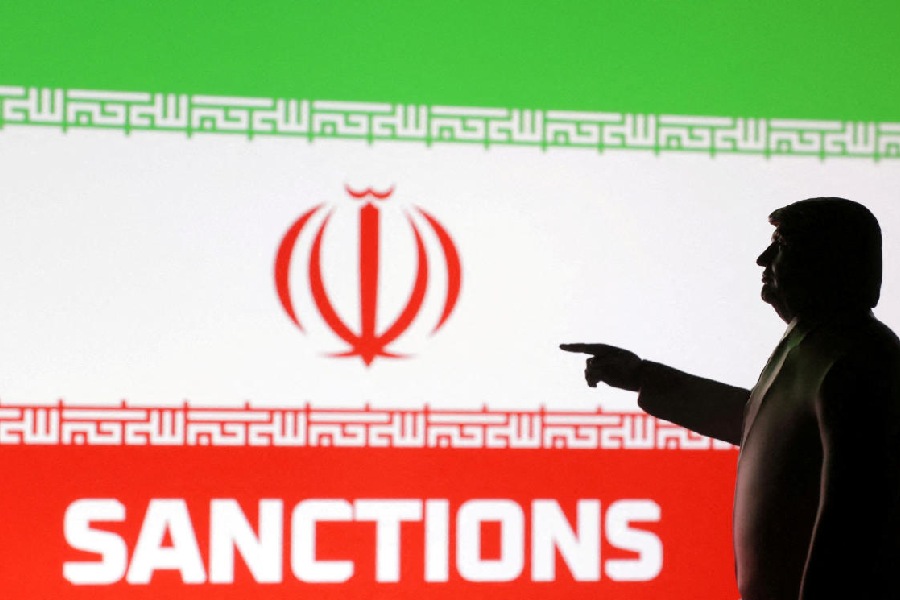The US Treasury Department on Tuesday sanctioned a network of shipping companies and vessels led by an Iraqi-Kittitian businessman for smuggling Iranian oil disguised as Iraqi oil.
The administration of President Donald Trump is keeping pressure on Iran while nuclear talks have stalled. A sixth round of negotiations was suspended after the start of a 12-day war in June.
A senior Iranian official said on Tuesday that the path to nuclear negotiations is not closed but US demands for curbs on Iranian missiles are obstructing prospects for talks.
The Treasury said the network, run by a businessman who is a citizen of Iraq and St. Kitts & Nevis and is based in the United Arab Emirates, operates primarily by covertly blending Iranian oil with Iraqi oil, which is then marketed intentionally as solely of Iraqi origin to avoid sanctions.
"By targeting Iran’s oil revenue stream, Treasury will further degrade the regime’s ability to carry out attacks against the United States and its allies," Treasury Secretary Scott Bessent said in a statement.
"We remain committed to an oil supply free from Iran and will continue our efforts to disrupt the ongoing attempts by Tehran to evade U.S. sanctions," he said.
Iran's mission to the United Nations in New York did not immediately respond to a request for comment.
Treasury said it designated the businessman and Babylon Navigation DMCC, one of two UAE-based companies he runs that manage the network's operations, and several vessels for being owned or having worked directly or indirectly on behalf of Babylon.
Treasury identified several Liberia-flagged tankers including the Adena, Liliana and Camilla, as property in which Babylon has an interest. The department said the tankers helped the network blend Iranian and Iraqi oil at sea, via ship-to-ship transfers in the Arabian Gulf, and in Iraqi ports.
Treasury also designated several Marshall Islands-based companies, including Tryfo Navigation, Keely Shiptrade Limited, Odiar Management S.A., Panarea Marine S.A. and Topsail Shipholding Inc, that it said served as registered owners of the vessels to likely obfuscate the extent of the businessman's ownership over them.











